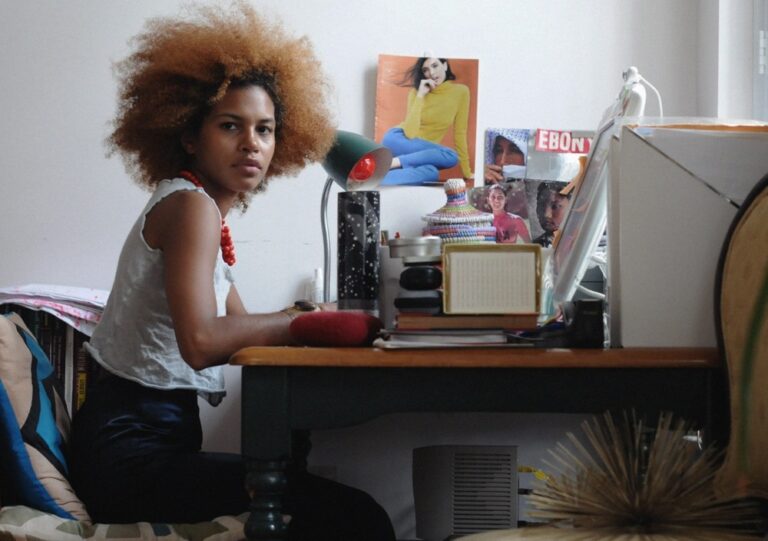When I reached out to estate-planning lawyer Lori Anne Douglass for our , I wasn’t expecting to get my whole entire life.
Our hour-long conversation was the kind of hand-holding, “This is how you get your grown-up financial life together, girl” advice I didn’t even know I needed. And this estate planning information felt all the more necessary after news of the messiness that may ensue due to Prince dying without a will, and Snoop Dog saying he wasn’t planning on leaving a will for his family.
We used to be the assets. Now we have assets.
“People don’t understand that when you die, all your stuff stays here,” says Douglass of New York City-based Douglass Rademacher. “And if you don’t make a plan for it, it’ll get to the next generation, but there’ll be a significant haircut.”
Douglass found her way into estate planning after seeing a lack of Black attorneys / attorneys in general reaching out to African Americans. She says estate planning is much bigger than “You get this after I die”—it can be about setting our families up for the type of generational wealth that has long alluded our community.
“Having done this for 25 years and watched all the money that was lost in families because they didn’t have any planning,” she says, “I am convinced that if the African-American community got on the good foot and every Black person who is alive over 60 did their estate planning, we’d be the richest minority group in the United States in one generation. We used to be the assets. Now we have assets.”
Douglass had so many helpful insights, I’ve split this article into two. Read on to get a basic understanding of estate planning and what you need to take care of now. Then read part two of our interview for information on .
What is estate planning?
It’s the process of making sure you have the legal documents in place for if you become disabled, as well as what will happen to your assets when you die.
When I think about estate planning, I only think about when you die. I don’t know if people think about the possibility of becoming disabled.
It’s equally as important. Most people are going to be disabled for some period of time before they die now that people are living so long. If the person becomes disabled and can’t make their own medical or financial decisions, the only way that somebody can legally make [decisions] for them is to go to court and do a guardianship or conservatorship proceeding. It’s expensive and time-consuming, and it’s just really unnecessary.
A person [should] complete, for medical directives, a health-care proxy that appoints somebody to make your medical decisions if you can’t make them; a living will that address whether you want to be removed from artificial life support if that life support is only going to prolong your natural death; and a general power of attorney that allows somebody to make your financial decisions if you can’t make them. All of those documents can be found online for free.
Everybody should fill [medical directives] out as soon as you turn 18 for a lot of reasons. First of all, if something happens to your 18 year old at college, you cannot get any information about your child’s medical records or go to your child’s bank account or do anything—privacy laws prevent it. Also when people get over 60 or so, you should definitely have those documents executed. If you have a stroke, a medical emergency, or you start to have dementia, if you don’t have those things executed, your family members are not going to be able to help you without court involvement.
What are some other things people should keep in mind when estate planning?
People can do some of these things themselves, and they should make sure they do. But I recommend you go to an attorney for the preparation of your will, because there’s so many things that can go wrong. It’s so complicated.
Everybody should make sure they have beneficiary designations. If you’re employed, check and see what your benefits are at work if you become disabled or die, and make sure that your 401k or life insurance has an actual name [for the] beneficiary or a contingent beneficiary. Update and check those! There are a lot of people who start a job when they’re in their 20s and they’re single, and they put their [immediate family] on their benefits at work. Then they get married and they never really think about going back to change that.
I’ve been doing this for a long time now, and I have yet to have a mother or father say, “Oh no, my son meant to leave this $1 million to his wife!” They always say, “If he wanted you to have the money, he would have changed it.”
Then the deed if you own real estate: People often think that it’s your will that determines how real estate is going to transfer, but it’s really the language of the deed. So for example, [say] a brother or a sister inherited a vacation house. If that deed is prepared in a way that says the two of them own it jointly with “right of survivorship,” that means when the first sibling dies, the other sibling takes it. The family might not want that. The family may want for the children of the first sibling to die to get their interest, and for the house to be continued to be owned by the family. You’d have to make sure that the deed says [that].
And having a last will and testament is so important. More than 50% of African Americans die without a will. Everybody should have a last will and testament if you don’t have a more complex estate plan, because it’s always cheaper to administer an estate when you have a will than when you don’t have anything.
In a will, the person who makes the will picks the executor, the person that’s in charge. You can say that you want your executor to serve without posting a bond. [If that’s not stated in a will], you have to get a fiduciary bond so that the court knows you’re not going to steal the assets. Let’s say a person dies and their estate is worth $3 million and it’s all going to go into the hands of the representative. When you have a will, that executor is presumably someone you think is trustworthy enough to collect the $3 million and to pay the debts and distribute it.
But if you don’t have the will, then it’s the state statute that determines who is the person with priority to administer your estate. And because the state doesn’t know whether the person who says they want to administer your estate is a crook or not, the court often makes someone post a fiduciary bond. You have to pay the premium for the bond and the person has to qualify financially for a bond.
It can often be difficult. I’ve had situations where a person dies and they don’t make a will and they have [two] adult children. One child doesn’t want to be the administrator, and the other one has financial problems and won’t qualify for a bond. You end up having situations where you don’t have any family member who’s really entitled or eligible to serve. If you don’t have a family member who can get bonded, then the public administrator comes in and administers your estate. So right away from the beginning just picking a personal representative in a will is so important.
If you have minor children, a will is the only legal document where you can nominate guardians for your children.
To learn more about how you can set up your will to protect and provide for your children should the worst happen, click here for .
This article is part of our Money series, focusing on both the hard currency and our feelings of self-worth. Read more articles in the .
We made a handy graphic outlining the four things you can do on your own to get your estate plans going. Get started, and share with a friend!

Related Articles
Why This Entrepreneur Wants Black People To Focus On Wealth Building
Need To Negotiate A Salary Or A Raise? Make Sure You’re Getting What You’re Worth
















